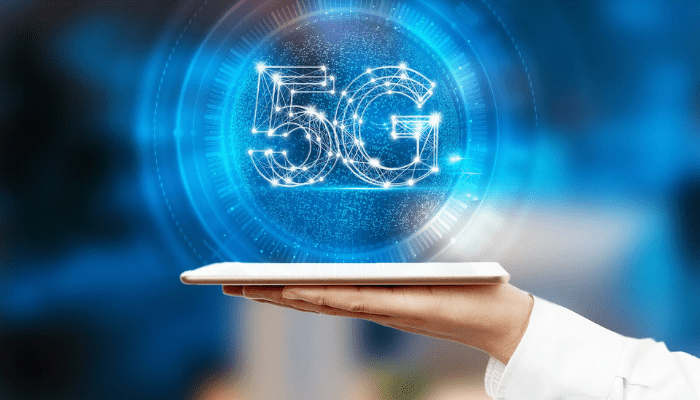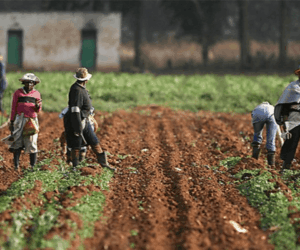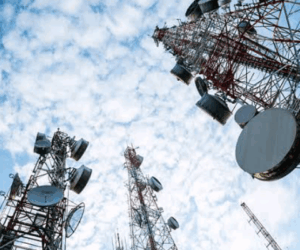As 5G-enabled devices flood the market, the infrastructure to support them remains inadequate, threatening the nation’s digital transformation goals, a new report has revealed.
Across urban hubs such as Lagos, Abuja, and Port Harcourt, Nigerians are snapping up 5G-capable smartphones at an unprecedented rate.
A global forecast projects a 13.2 percent growth in 5G device sales in 2025, following a 16 percent surge in 2024.
In the Middle East and Africa region, smartphone shipments grew by three percent year-on-year in the second quarter (Q2) of 2025, fueled by promotions and improving economic conditions.
Affordable 5G-compatible phones from brands such as Xiaomi and Samsung now account for nearly half of new smartphone purchases in Nigeria.
However, the reality on the ground tells a different story. Only 12.7 percent of Nigeria’s mobile towers are 5G-enabled, and coverage is confined to select urban pockets, leaving rural areas and even some state capitals disconnected.
The Nigerian Communications Commission (NCC) estimates that 5G services reach less than five percent of the population, compared to 45 percent for 4G.
A recent NCC-Ookla study revealed a 70.9 percent 5G coverage gap in Lagos, where 41,057 5G-capable devices were detected but unable to connect to 5G networks. In Abuja, a 65.6 percent gap affects 16,143 devices.
The implications are significant for Nigeria’s digital economy. Lagos, a metropolis of over 20 million and Africa’s largest city, is a hub for tech and innovation, yet its limited 5G access stifles growth in sectors such as real-time data analytics, remote work, and digital commerce.
Read also: Mobile industry to drive $270bn GDP growth in Africa by 2030 – GSMA report
In Abuja, the nation’s capital, the coverage gap threatens Nigeria’s aspirations to lead Africa’s digital economy. “Device adoption reflects confidence in 5G’s potential, but without robust network expansion, we’re creating a bottleneck,” warned Jide Awe, a telecom analyst.
Awe noted that Nigeria risks lagging peers like South Africa, where 5G coverage is more widespread despite similar economic challenges.
While 5G-enabled phones are affordable, it is still out of reach of many Nigerians. Karl Toriola, CEO of MTN Nigeria, highlighted the affordability of 5G smartphones as a critical issue, with prices ranging from N120,000 ($75) to over N2 million ($1,250), out of reach of the 88.4 million Nigerians living in extreme poverty.
“The biggest barrier is the cost of handsets,” Toriola said, noting MTN’s collaboration with the Ministry of Communications to promote local smartphone assembly and offer financing through its MoMo platform.
Meanwhile, operational challenges such as 1,100 daily fibre cuts, 545 access denials, and 99 cases of generator and battery theft, as reported by the NCC, severely disrupt network reliability.
Regulators have unveiled reforms to tackle these challenges. A 50 percent tariff hike approved in January 2025 has unlocked $1 billion in equipment investments since June, aimed at upgrading base stations and expanding fibre backbones.
The NCC also signed a Memorandum of Understanding with federal and state ministries to curb disruptions from road construction and vandalism, designating telecom infrastructure as Critical National Infrastructure (CNI). “Cutting fibre is now a criminal offence, which will safeguard our investments,” said Dinesh Balsingh, CEO of Airtel Nigeria.
Meanwhile, both MTN and Airtel are leveraging technology to optimise 5G deployment.
Yahaya Ibrahim, MTN’s chief technical officer, emphasised AI-driven demand planning and fault detection to prioritise high-demand urban centers such as Lagos and Abuja. “We won’t deploy 5G where there are no 5G handsets,” Ibrahim said, noting that only 4.9 million 5G-capable devices, mostly iPhone 13 models and above, are in use nationwide.
Meanwhile, Airtel is accelerating its 5G rollout in cities, using AI to monitor billions of daily network interactions and deploying small-cell solutions such as mini antennas in dense areas like Computer Village and Victoria Island. “We are focusing on customer experience APIs to pinpoint weak spots and act fast,” Balsingh explained.
Airtel is also expanding its fibre infrastructure to support 5G, partnering with satellite providers such as Starlink and OneWeb to bring 4G and 5G to rural areas. Over the past two years, the company relocated 3,000 kilometers of fibre to boost resilience.
However, rural regions remain underserved, with network speeds up to 50 percent slower than in urban centers, exacerbating Nigeria’s digital divide.
Operators are calling for government subsidies to offset costs. “Expanding access to high-speed networks is critical for Nigeria’s digital transformation. No one should be left behind,” an NCC spokesperson told BusinessDay.









